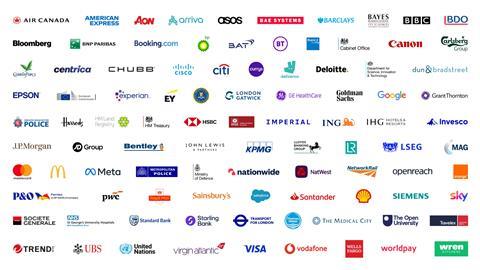The UK has officially declared its intention to become an “AI superpower,” a bold ambition underpinned by a historic influx of capital from major U.S. technology firms. In a landmark agreement dubbed the “Tech Prosperity Deal,” companies like Microsoft, Google and Nvidia have committed tens of billions of pounds in investment, primarily targeting the development of AI infrastructure.
This move has been championed by political leaders as a catalyst for economic growth and a generator of high-skilled jobs across the country. But as with any transformational technology, the opportunities are inextricably linked with significant risks. The true challenge for UK firms now is to create a robust, holistic playbook for navigating this new era of innovation.
The Economic Opportunity: A New Industrial Revolution?
Microsoft CEO Satya Nadella compared the current AI boom to the rise of the personal computer in the 1990s, predicting that its economic benefits could be realised within five to ten years. This investment is not just about building data centers; it’s about fundamentally reshaping the UK’s economic landscape. By developing the “AI infrastructure” that Nvidia’s Jensen Huang says is missing, the UK hopes to attract top-tier talent, spur research and development, and drive productivity gains across every sector.
For businesses, this means new tools for everything from personalised marketing to supply chain optimisation and drug discovery. The potential is immense, but so is the pressure to adapt. Companies that fail to understand this new technology and its implications risk falling behind.
The Risks: Navigating the Uncharted Territory
While the excitement is palpable, so are the voices of caution. Satya Nadella himself conceded that “all tech things are about booms and busts and bubbles,” a clear warning against irrational exuberance.
The risks extend far beyond economic volatility. A primary concern is the massive energy consumption required to power the large banks of servers that run AI. While both Satya Nadella and Jensen Huang have offered solutions, from improved energy efficiency to off-grid gas turbines, the environmental impact remains a significant hurdle.
Campaigns like Foxglove have warned that the UK could end up “footing the bill for the colossal amounts of power the giants need.”
Furthermore, the legal and ethical frameworks are still playing catch-up. The EU AI Act, with its risk-based approach, is a first step, but its implementation phases are complex, and many legal experts question if it is truly “fit for an AI future.” Questions around data privacy, copyright for creative works used in AI training, and algorithmic bias are pressing and unresolved. For a business, this means a new layer of compliance and governance requirements that must be managed to avoid significant legal and reputational risk.
The Strategic Playbook for an AI Future
The most successful firms will be those that treat AI not as a siloed technology, but as a company-wide initiative that requires a cross-functional strategy. This means bringing together everyone from the C-suite and legal counsel to junior managers and IT staff to develop a comprehensive playbook. The key components of this strategy include:
- Risk Classification & Governance: A clear process for assessing the risk level of every AI tool deployed, ensuring it meets evolving regulatory standards and internal governance requirements.
- Quantifying Digital Risk: Developing clear frameworks and key performance indicators (KPIs) to effectively communicate AI-related risks and opportunities to the board and senior executives. This translates a technical challenge into a language the business understands.
- Data Enablement & Compliance: Implementing practical strategies like PETs (Privacy Enhancing Technologies) and data minimization to make data accessible for innovation while maintaining strict compliance with regulations like GDPR and the UK’s data frameworks.
The sheer scale of this AI investment means that no single department can manage its risks alone. The expertise of a CISO is just as critical as that of a DPO, and the strategic vision of a CEO must be informed by insights from every level of the organisation. The UK’s potential to become an AI superpower will depend not just on the infrastructure it builds, but on its ability to govern and manage this transformative technology responsibly.
AI Impacts Everyone. Is Your Department Ready for the Risks?
#RISK Europe, London, ExCel, on November 12-13, 2025.
Our agenda is built to address this universal challenge. We highly recommend key sessions like:
- AI, Privacy and Power: Is the GDPR Fit for an AI Future? - A deep dive into the legal and ethical frameworks needed for AI adoption.
- Quantifying Digital Risk: Frameworks and KPIs for Board-Level Reporting - Learn how to effectively communicate the risks and rewards of AI to your senior leadership.
- Data Enablement Under GDPR & UK Frameworks - Discover how to balance innovation with compliance to fuel your digital transformation.
Beyond the sessions, #RISK Europe is your chance to connect and collaborate with the people shaping the future of AI risk. You’ll meet professionals from every level and department across all industries, including:
- Financial Services: American Express, Barclays, HSBC, J.P. Morgan, Mastercard, Visa
- Government & Public Sector: Ministry of Defence (MOD), Cabinet Office, European Commission, NHS Counter Fraud Authority, Metropolitan Police Service
- Retail & Consumer: Harrods, ASOS, British American Tobacco, John Lewis, Sainsbury’s, Wren Kitchens
- Transport: Air Gatwick Airpoty, Canada, Transport for London, Virgin Atlantic

You’ll also have the opportunity to engage with leading exhibitors like Google, Protecht, Artex Risk Solutions, Quantexa, and Galvanize (now ACL), who are on the front lines of building AI-driven solutions.
Don’t let your firm get left behind. Join us at #RISK Europe to collaborate, share ideas, and build a strategic playbook for a more resilient future.












7 Readers' comments